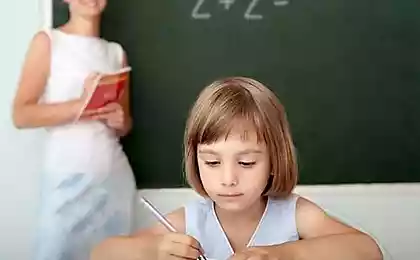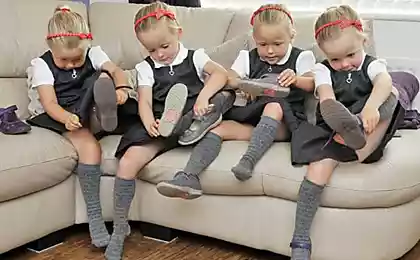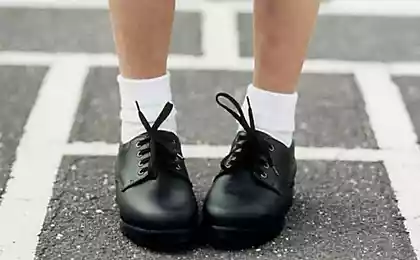820
6 practical advice of experienced teachers to help make children obedient. Mission Possible!
Very often, we can not force children to obey. Sometimes there is a feeling that this is impossible. But an elementary school teacher and mother of four children, Stephanie Byrne Byankardi assurances to the contrary. And today she will introduce you with 6 receptions that will affect children, forcing them to listen to you. These disciplinary techniques work equally well both at school and at home.
1. Effective discipline is not tied to penalties
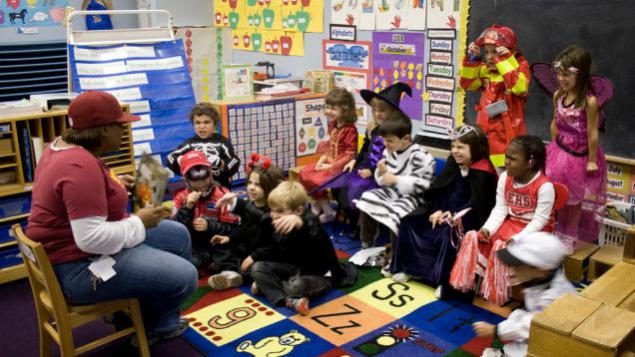
Penalty - not the main thing in the process of establishing the discipline. This term is correct to decipher as the ability to manage children's behavior.
Discipline is based on the quality of the child's relationship with a teacher (teacher or parent). If you show the children the attention and care they have born the trust, affection and a desire to be accepted. And this is a basis of good behavior and effective discipline. It is important to make sure your relationship is based on mutual respect and responsiveness.
As a teacher, Stephanie Byrne-Byankardi understood that the establishment of the daily routine and frequent communication with children - the necessary conditions for further joint fruitful work.
For example, when children come into the classroom and say hello, it is important to respond to everyone, whatever you may be busy at this time. Because, if you do not pay attention to what the child tells you, you can quickly earn the confidence from his side.
Home junior school teacher Stephanie Byrne-Byankardi always sets the alarm for 30 minutes earlier than the time when you need to collect daughter to school. It does this in order to wake her up gently, putting into practice the principles of respect, care and responsiveness. At first, she turns on the light in her daughter's room and says that it is time to wake up. Then he goes on business and returned a couple of minutes, then picks up the blanket and her hair from her face, and says that she went to the bathroom. After some more time, Stephanie returned to the bathroom and saw her daughter sleeping, sitting on the toilet and propping his head. She says the girl to wake up and brush your teeth, and then sent to prepare breakfast.
According to Stephanie, many parents prefer to pull their child out of bed and force to get him into the tub. But imagine that you doing something like your second half. So far not a scandal, really?
2. Effective discipline is tied to positive reinforcement
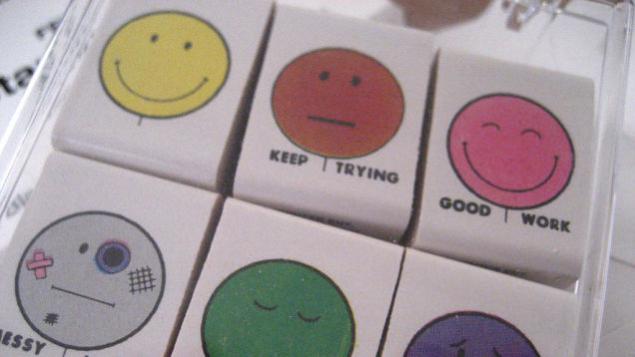
Positive reinforcement can be expressed by a smile, "give five" or praise.
You should try to properly praise the child, avoiding to compare it with others. It is better to compare it with yourself in the past, talking about how he has moved in a particular occupation. Also pay attention to how you praise. Your tone should be friendly, and praise - genuine, children are very thin feel false.
Instead of "well done" or "good boy / good girl" how best to celebrate the good, right, diligent, creative, interesting, friendly enrolled or did the child.
Positive reinforcement can be life material - stickers, prizes. But it is better to use only in extreme cases and not often.
3. Effective discipline involves modeling the correct behavior
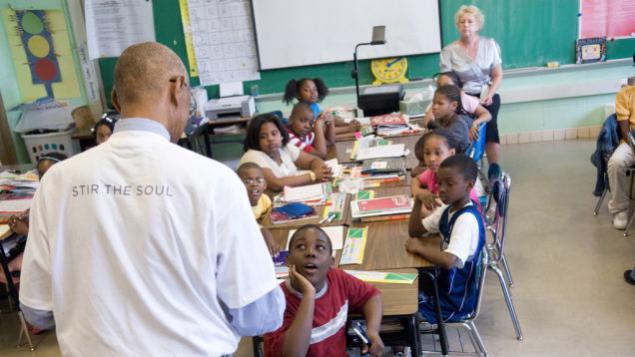
Along with positive reinforcement it is very important to modeling the correct behavior. After all, no matter what you teach your children, they still behave like you. So if you want your children to be decent, kind, non-aggressive, follow the other in different situations. What you say, how you do it, you're acting, how to communicate - the children unconsciously read every little thing. So the best thing that can make the caregiver for the children - it is to be a good example.
Stephanie Byrne-Byankardi talks about the case of his life, when in classes for kids, she would sit on the furniture, because it was small. It lasted as long as she had not noticed that her pupils sitting on the shelf. This incident forced her to reconsider their behavior and get rid of this habit.
4. Effective discipline provides the right direction
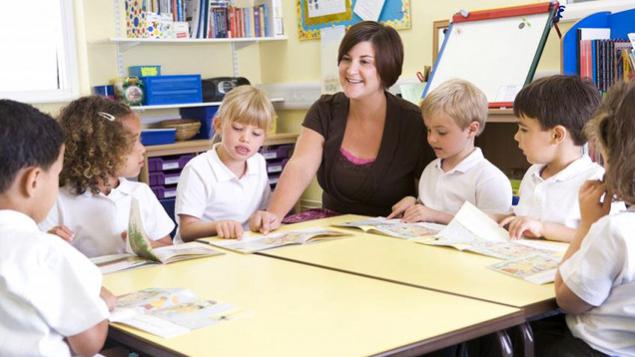
When the supervised children always try to do it right. Explains why it is necessary to do so, and not otherwise, talk about the reasons, in accordance with which you make decisions about the educational process. Try to convey their thoughts to the children so that they were most appreciated.
For example, when a child Stephanie did not want to go to sleep at the proper time, she reminded him that the last time he slept, because it does not lay down time.
5. Prevention - the most effective form of discipline
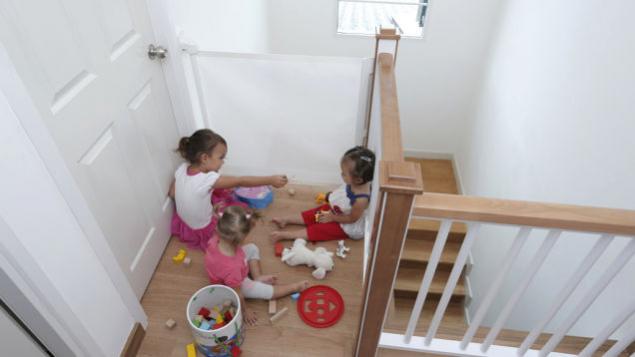
Often, some problems can be prevented before they occur. For example, instead of asking for the thousandth time the child not to climb the steps, put there a special fence. Or, instead of raising everyone who wants to wash his hands in the sink, put a chair to the children themselves could do.
It is important to plan and think about what the consequences might entail or that your action. For example, it is not necessary to take a small child to the store at a time when he usually sleeps. Or interrupt the game kid and make him sharply to gather to catch the other end of the city in 20 minutes. Do you really think he will be okay to behave in this situation? It is better to save the nerves themselves and the baby, and starts to collect in advance.
If you do not want children to watch certain channels or climbed on some sites on the internet - will block channels or put the program parental controls.
Better warn the child in advance that you will soon start to do something else or are about to leave, the baby could be adjusted smoothly to complete their studies.
6. When nothing else works, use the suspension
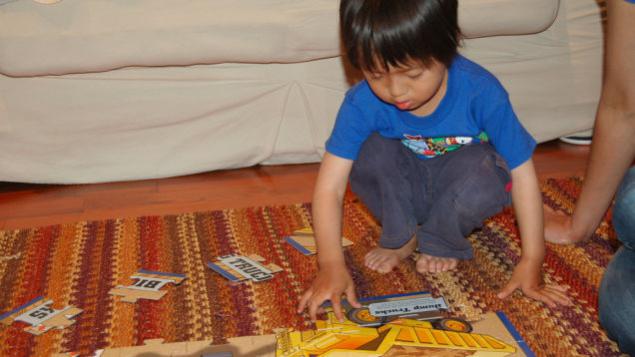
In the classroom or at home must be quiet cozy corners where to send their children when they behave inappropriately, so they thought, and calmed down. The child should not be there more than that number of minutes, how old he is, but if he does not want to stay longer.
It is possible to organize such a corner of the couch or easy chair, put the soothing things, dolls, drawing board, the designer of puzzle, a photo album or a few books.
After his stay comes to an end, the child should be asked whether he knows the reason why he was sent here - if not, to explain, and then help find the best ways of solving the problems.
This method works better than negative reinforcement - punishment, spanking and abuse. The latter only works in the early stages, then the child gets used to them.
Take on arming the few secrets that will greatly improve your relationship with your children, which will undoubtedly have a positive impact on the discipline. Children - a very difficult task, and sometimes for something to work out the right approach, it takes a long time. Do not be discouraged if at first something will not turn out, try and you will achieve your goal.
Share this article with your friends, who are raising children, or teach them.
via takprosto cc
1. Effective discipline is not tied to penalties

Penalty - not the main thing in the process of establishing the discipline. This term is correct to decipher as the ability to manage children's behavior.
Discipline is based on the quality of the child's relationship with a teacher (teacher or parent). If you show the children the attention and care they have born the trust, affection and a desire to be accepted. And this is a basis of good behavior and effective discipline. It is important to make sure your relationship is based on mutual respect and responsiveness.
As a teacher, Stephanie Byrne-Byankardi understood that the establishment of the daily routine and frequent communication with children - the necessary conditions for further joint fruitful work.
For example, when children come into the classroom and say hello, it is important to respond to everyone, whatever you may be busy at this time. Because, if you do not pay attention to what the child tells you, you can quickly earn the confidence from his side.
Home junior school teacher Stephanie Byrne-Byankardi always sets the alarm for 30 minutes earlier than the time when you need to collect daughter to school. It does this in order to wake her up gently, putting into practice the principles of respect, care and responsiveness. At first, she turns on the light in her daughter's room and says that it is time to wake up. Then he goes on business and returned a couple of minutes, then picks up the blanket and her hair from her face, and says that she went to the bathroom. After some more time, Stephanie returned to the bathroom and saw her daughter sleeping, sitting on the toilet and propping his head. She says the girl to wake up and brush your teeth, and then sent to prepare breakfast.
According to Stephanie, many parents prefer to pull their child out of bed and force to get him into the tub. But imagine that you doing something like your second half. So far not a scandal, really?
2. Effective discipline is tied to positive reinforcement

Positive reinforcement can be expressed by a smile, "give five" or praise.
You should try to properly praise the child, avoiding to compare it with others. It is better to compare it with yourself in the past, talking about how he has moved in a particular occupation. Also pay attention to how you praise. Your tone should be friendly, and praise - genuine, children are very thin feel false.
Instead of "well done" or "good boy / good girl" how best to celebrate the good, right, diligent, creative, interesting, friendly enrolled or did the child.
Positive reinforcement can be life material - stickers, prizes. But it is better to use only in extreme cases and not often.
3. Effective discipline involves modeling the correct behavior

Along with positive reinforcement it is very important to modeling the correct behavior. After all, no matter what you teach your children, they still behave like you. So if you want your children to be decent, kind, non-aggressive, follow the other in different situations. What you say, how you do it, you're acting, how to communicate - the children unconsciously read every little thing. So the best thing that can make the caregiver for the children - it is to be a good example.
Stephanie Byrne-Byankardi talks about the case of his life, when in classes for kids, she would sit on the furniture, because it was small. It lasted as long as she had not noticed that her pupils sitting on the shelf. This incident forced her to reconsider their behavior and get rid of this habit.
4. Effective discipline provides the right direction

When the supervised children always try to do it right. Explains why it is necessary to do so, and not otherwise, talk about the reasons, in accordance with which you make decisions about the educational process. Try to convey their thoughts to the children so that they were most appreciated.
For example, when a child Stephanie did not want to go to sleep at the proper time, she reminded him that the last time he slept, because it does not lay down time.
5. Prevention - the most effective form of discipline

Often, some problems can be prevented before they occur. For example, instead of asking for the thousandth time the child not to climb the steps, put there a special fence. Or, instead of raising everyone who wants to wash his hands in the sink, put a chair to the children themselves could do.
It is important to plan and think about what the consequences might entail or that your action. For example, it is not necessary to take a small child to the store at a time when he usually sleeps. Or interrupt the game kid and make him sharply to gather to catch the other end of the city in 20 minutes. Do you really think he will be okay to behave in this situation? It is better to save the nerves themselves and the baby, and starts to collect in advance.
If you do not want children to watch certain channels or climbed on some sites on the internet - will block channels or put the program parental controls.
Better warn the child in advance that you will soon start to do something else or are about to leave, the baby could be adjusted smoothly to complete their studies.
6. When nothing else works, use the suspension

In the classroom or at home must be quiet cozy corners where to send their children when they behave inappropriately, so they thought, and calmed down. The child should not be there more than that number of minutes, how old he is, but if he does not want to stay longer.
It is possible to organize such a corner of the couch or easy chair, put the soothing things, dolls, drawing board, the designer of puzzle, a photo album or a few books.
After his stay comes to an end, the child should be asked whether he knows the reason why he was sent here - if not, to explain, and then help find the best ways of solving the problems.
This method works better than negative reinforcement - punishment, spanking and abuse. The latter only works in the early stages, then the child gets used to them.
Take on arming the few secrets that will greatly improve your relationship with your children, which will undoubtedly have a positive impact on the discipline. Children - a very difficult task, and sometimes for something to work out the right approach, it takes a long time. Do not be discouraged if at first something will not turn out, try and you will achieve your goal.
Share this article with your friends, who are raising children, or teach them.
via takprosto cc
In another country? You do not know the language? With this discovery, such a situation is not terrible!
The word "hello" in 37 languages: say hello to the world! Such a native, but so different ...


